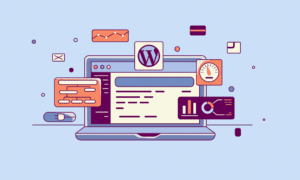Introduction
In today’s digital age, a fast and efficient website is crucial for online success. Website speed directly impacts the user experience, search engine rankings, and overall website performance. This article explores the significance of website speed and its direct influence on WordPress sites, along with practical tips to improve it, including the importance of performing a WordPress speed test.
Understanding Website Speed
What is Website Speed?
Website speed refers to the time it takes for a web page to load fully on a user’s device. It includes the time taken to process server requests, load images, and execute scripts. A faster website ensures that visitors can access content quickly and efficiently.
Factors Affecting Website Speed
Several factors influence website speed, including hosting quality, code optimization, image sizes, caching, and server location. Bloated code, unoptimized images, and inadequate hosting can lead to sluggish performance.
The Impact of Website Speed on WordPress Sites
User Experience
Website speed plays a pivotal role in user experience. Visitors expect a seamless browsing experience, and if a website is slow to load, they are more likely to abandon it. A fast website enhances user satisfaction and encourages them to explore further.
Search Engine Ranking
Search engines like Google consider website speed as one of their ranking factors. Faster-loading websites are more likely to rank higher in search results, leading to increased organic traffic and visibility.
Measuring Website Speed
Tools for Speed Measurement
Several online tools can help measure website speed accurately. Tools like Google PageSpeed Insights, GTmetrix, and Pingdom provide insights into a website’s performance and offer suggestions for improvement.
The Importance of WordPress Speed Test
Performing a WordPress speed test is essential to understanding the current speed of your WordPress site. These tests analyze various aspects of your website and provide valuable data to optimize its performance.
How to Improve Website Speed on WordPress
Optimizing Images
Compressing and optimizing images can significantly reduce page load times. Using appropriate image formats and dimensions without compromising quality is essential for a faster website.
Caching and Minification
Caching stores frequently accessed data, reducing the need to fetch it from the server repeatedly. Minification involves removing unnecessary characters from code, making it more streamlined and efficient.
Choosing a Reliable Hosting Provider
Selecting a reputable hosting provider with robust server infrastructure is crucial for better website speed. A dedicated hosting plan or managed WordPress hosting can significantly improve performance.
Content Delivery Network (CDN)
Implementing a CDN distributes website content across various servers worldwide. This reduces the physical distance between the user and the server, leading to faster load times.
Mobile Website Speed and Its Significance
With the increasing use of mobile devices, mobile website speed has become critical. Users on mobile expect quick access to information, and a slow mobile site can drive away potential customers.
The Connection Between Website Speed and Conversion Rates
A faster website positively impacts conversion rates. When users experience a smooth and fast browsing experience, they are more likely to complete transactions, sign up for newsletters, or engage with the website.
The Relationship Between Website Speed and Bounce Rates
Slow-loading websites experience higher bounce rates. If visitors leave a site before it fully loads, it indicates dissatisfaction and adversely affects website performance.
Impact of Website Speed on SEO and Organic Traffic
Google’s Core Web Vitals
Google’s Core Web Vitals are specific page speed and user interaction metrics that influence search ranking. Focusing on these metrics can improve SEO and drive more organic traffic.
Website Speed and Crawling
Search engine crawlers have limited time to index websites. A faster website ensures that all essential content is crawled, leading to better indexing and visibility.
The Role of Website Speed in Ad Campaigns
Website speed directly affects the performance of ad campaigns. Landing pages with faster load times lead to higher ad quality scores and better ad placements.
Website Speed and Competitor Analysis
Analyzing competitors’ website speed can provide valuable insights. Identifying areas where competitors excel can help optimize your own site and stay ahead in the digital landscape.
Future of Website Speed and Performance Optimization
As technology advances, the importance of website speed will only grow. Website owners must continually adapt and optimize to meet the expectations of modern users.
Tips for Monitoring Website Speed Regularly
Regularly monitoring website speed using tools like Google Analytics helps identify potential issues promptly. Ongoing maintenance ensures consistent high-speed performance.
Conclusion
In conclusion, website speed is a critical aspect of running a successful WordPress site. It directly impacts the user experience, search engine rankings, and overall online performance. By prioritizing website speed optimization and performing regular WordPress speed tests, website owners can create a seamless and engaging browsing experience for their visitors.
FAQs
Why is website speed important for SEO?
Website speed is important for SEO as search engines consider it a ranking factor. Faster websites tend to rank higher in search results, leading to increased organic traffic.
How can I check my website’s speed?
You can use various online tools like Google PageSpeed Insights, GTmetrix, or Pingdom to measure your website’s speed and receive performance improvement suggestions.
Can website speed impact mobile user experience?
Yes, website speed significantly impacts mobile user experience. Users on mobile devices expect fast access to information, and slow-loading sites can drive them away.
Will improving website speed increase conversion rates?
Yes, improving website speed can positively impact conversion rates. A faster website provides a better user experience, leading to increased conversions and engagement.
What are Google’s Core Web Vitals?
Google’s Core Web Vitals are specific metrics that focus on page speed and user interaction. Optimizing for these metrics can improve SEO and organic traffic.





































